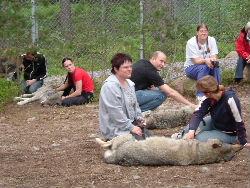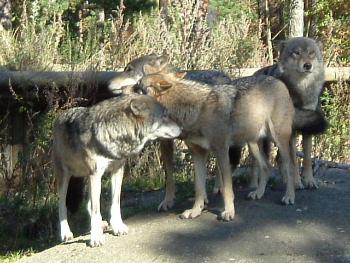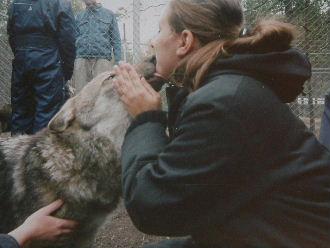Further studies and implications


Further implications
There are a lot more studies needed to determine the real importance of hands-on meetings, both from the animals point of view as well as humans.
To determine the benefits for the wolves, one must make a comparison with other captive packs, preferably with both human socialized, like Kolmården Zoo’s, and nonhuman socialized packs.
Moreover as for the attitude survey, one must look at different target groups, like hunters, livestock holders and people participating in company conferences at the Vildmarkshotel, nearby the zoo, to get a larger difference in answers than what I got.
One suggestion may be to try and establish a ongoing relationship with the Swedish Hunting Society, since it appears that this is the target group most opposed to wolves in the wild. Maybe it is possible to arrange so that a hands-on meeting with wolves is given to every one taking their hunting license, as a way to ensure to give them a positive experience of the wolves. Otherwise as I understand it, it may be difficult to get the antagonists of wolves to agree to partake in a confrontation with the animals.
Conclusion

Conclusion
These studies suggest that hands-on meetings could be a tool for conserving and preserving the wolf, because it increase the knowledge about the wolves and offer a positive experience of the animals. Both of these reasons have in other studies found to be correlated with an increasing acceptance and tolerance for the wolves in the wild.
Moreover it could also be if not beneficiary for a captive pack in any other way, considered as an environmental enrichment, increasing activity in a pack and enlightening the animals days by having them interact with different people and exposing them to different smells.

Acknowledgement
A big thanks to my supervisor and the keepers at Kolmården Zoo for all their advice , help and support. A thanks also to Northern Lights Wildlife, and all other participants in my project.
Responsible for this page:
Director of undergraduate studies Biology
Last updated:
